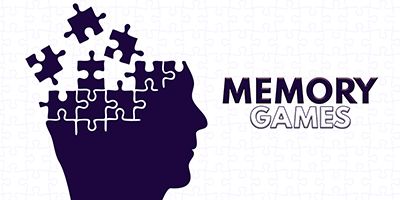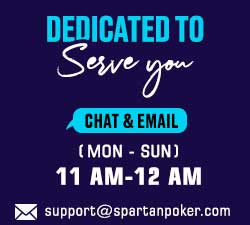Memory Games
At some point in their lives, everyone has played a memory game. Whether it's a game of spot the difference, basic pairing games with playing cards, or even a crossword puzzle, there's something for everyone. To complete the game, the players must rely on their memory. Users also hone their vital talents as a result of this.
There are many types of memory games for adults and memory games for kids that test the level of a person’s cognitive abilities. Here we will be talking about the different brain exercises for memory and memory games to sharpen the mind. There are memory card games as well as memory games online that you can play at any time you wish.
Why Should You Play Memory Games?
- Other brain processes such as attention, concentration, and focus can all be improved by playing memory games. Memory games encourage critical thinking, which aids in the development of children's attention to detail.
- Visual recognition can be improved by playing memory games. Children's visual discrimination is improved by several memory games centered on recognizing differences or linking two related images. This will result in an increase in the speed with which images may be distinguished from one another.
- Playing memory games requires short-term memory, which can be improved by playing them frequently. A person's long-term memory can be improved by having excellent short-term memory. Both are intertwined, and the ability to transfer information from short-term to long-term memory will aid learning in other areas.
- Though memory games provide a quick boost, players must organize their moves ahead of time. Children can learn the value of thinking ahead and plotting their next step by exposing a card or plotting their next action.
List of Memory Games - (Top 21 Memory Brain Games)
The human brain is said to be capable of storing up to 2.5 petabytes of data, which is equivalent to nearly three million hours of television. The ability to recover all of that information, on the other hand, is a different story. We've created a list of games that can help you sharpen both your long- and short-term memory to speed up the process.
- Crossword: Crossword games are still the most popular form of cognitive training, with research suggesting a link between the practice and a delay in the onset of dementia.
- Shopping List: Using "peg words," try memorizing mini shopping trip lists. Assume you're in need of milk, eggs, and orange juice. One is the "sun," and two is a "shoe," as your peg words may rhyme with numbers. Imagine your shoe stepping on eggs with the sun behind you if eggs are the second item on your list. You'll remember not only the item but also where it is on the list. You can see who remembers the most goods and in what order if you share your purchases with a friend or family member.
- Jigsaw Puzzles: Because your brain must filter through a series of colors and forms in order to construct a visual picture, jigsaw puzzles are an excellent tool for engaging short-term memory.
- Multitasking Video Games: While shooting aliens is entertaining, it is unlikely to improve your cognitive function. Working memory, or the ability to recall information while solving a task, can be improved by video games that demand you to react to a stimulus while playing, such as a traffic sign or new surroundings.
- Connect 4: Connect 4 is a two-player board game in which players take turns dropping colored discs into a grid. The goal is to get four of your colored discs in a row, either horizontally, vertically, or diagonally, before your opponent does. Players must remember the positions of their own discs and those of their opponent in order to strategize and block their opponent's moves. Connect 4 is a fun and simple game that can improve memory and concentration skills.
- Copycat: Copycat is a memory game in which one player thinks of a pattern or sequence, and the other player must try to replicate it. The player who thinks of the pattern can give verbal or visual cues to help the other player remember it. The game can be played with any number of players and is a great way to improve memory and concentration skills.
- Halloween Memory: Halloween Memory is a memory game that involves a grid of cards with Halloween-themed images or symbols on one side. Players must turn over two cards at a time, trying to find matching pairs. The game is won when all the pairs have been found. Halloween Memory is a fun and engaging way to improve memory and concentration skills, especially for children who are interested in Halloween.
- Magic Cards: Magic Cards is a memory game in which players try to remember the order of a shuffled deck of cards. The game can be played with a standard deck of playing cards or with special magic cards that have unique symbols or images on them. Magic Cards is a simple and fun way to improve memory and concentration skills.
- Easter Memory: Easter Memory is a memory game that involves a grid of cards with Easter-themed images or symbols on one side. Players must turn over two cards at a time, trying to find matching pairs. The game is won when all the pairs have been found. Easter Memory is a fun and engaging way to improve memory and concentration skills, especially for children who are interested in Easter.
- Casino Cards Memory: Casino Cards Memory is a memory game that involves a grid of cards with casino-themed images or symbols on one side. Players must turn over two cards at a time, trying to find matching pairs. The game is won when all the pairs have been found. Casino Cards Memory is a fun and engaging way to improve memory and concentration skills, especially for adults who are interested in casino games.
- Blink: Blink is a fast-paced memory game in which players try to be the first to spot a matching pair of cards. The game is played with a deck of cards with unique images or symbols on them, and players must quickly scan the cards and remember where the matching pairs are located. Blink is a fun and exciting way to improve memory and concentration skills.
- Tricky Cups: Tricky Cups is a memory game in which players must remember the order in which a series of cups are placed on a table. The cups are rearranged, and players must try to remember the original order. Tricky Cups is a fun and engaging way to improve memory and concentration skills.
- Count the Sheep: Count the Sheep is a memory game in which players must remember the number of sheep that appear on the screen. The sheep are then hidden, and players must try to recall the correct number. Count the Sheep is a fun and engaging way to improve memory and concentration skills, especially for children.
- Balls and Boxes: Balls and Boxes is a memory game in which players must remember the locations of balls that are placed in boxes. The balls are then rearranged, and players must try to recall the original locations. Balls and Boxes are a fun and engaging way to improve memory and concentration.
- Memory Fruit: Memory Fruit is a memory game that involves a grid of cards with fruit-themed images or symbols on one side. Players must turn over two cards at a time, trying to find matching pairs. The game is won when all the pairs have been found. Memory Fruit is a fun and engaging way to improve memory and concentration skills, especially for children who are learning about different types of fruit.
- Track the Balls: Track the Balls is a memory game in which players must remember the movements of a series of balls that are placed on a grid. The balls are then moved around the grid, and players must try to recall their original positions. Track the Balls is a fun and engaging way to improve memory and concentration skills.
- Pattern Games: Pattern Games are a type of memory game in which players must remember and replicate a series of patterns or sequences. The patterns can be visual, auditory, or a combination of both, and can involve a variety of elements, such as colors, shapes, numbers, or sounds. Pattern Games are a great way to improve memory and concentration skills.
- Matching Games: Matching Games are a type of memory game in which players must remember and match pairs of cards or other items. The items can be images, symbols, words, or other elements, and players must remember the location of each item in order to find its match. Matching Games are a simple and fun way to improve memory and concentration skills.
- Rubik's Cube: The Rubik's Cube is a classic puzzle game that involves arranging a series of colored squares on a cube so that each face of the cube is a single color. Solving the Rubik's Cube requires both spatial reasoning and memory skills, as players must remember the positions of the squares as they move them around the cube. The Rubik's Cube is a challenging and engaging way to improve memory and cognitive skills.
- Multiplication Game: The Multiplication Game is a memory game that involves memorizing and recalling multiplication facts. Players are presented with a series of multiplication problems and must remember the correct answers in order to move on to the next level. The Multiplication Game is a fun and engaging way to improve math skills and memory.
- Picture Bingo: Picture Bingo is a memory game that involves a series of cards with pictures or symbols on them. Players must try to remember the location of specific cards and mark them off on their bingo cards when they appear. The Bingo game is won when a player has successfully marked off all the cards on their bingo card. Picture Bingo is a fun and engaging way to improve memory and concentration skills.
Memory Games for Adults
Memory games for adults can aid in the development of your cognitive "savings account." Your cognitive reserve is similar to a savings account in that you can save up some additional cognitive energy to utilize when you're in a pinch and need to think quickly. In addition, having a strong cognitive reserve might assist your memory to stay strong.
Lumosity: Lumosity's cognitive and scientific games are memory games for adults designed to help users improve their memory, concentration, processing speed, and problem-solving skills.
Discovery Game: Adults' visual recognition, conceptualization, and visual attention skills will be improved by playing this online mind game.
Matching Game: Adults can use this game to improve their logical reasoning, planning, and sustained attention skills. The matching memory games for adults are very popular with IQ tests as well.
Memory Games for Kids
Little children must be kept interested and engaged at all times. Their developing brains are working overtime between the ages of 6 and 14, learning new emotions, remembering new experiences, and creating new pathways. It's the perfect opportunity for them to learn everything they can!
The Memory Card Game: In this, the player has to turn 2 cards face up and if they match then the player wins. This memory game for kids is one of the most common games to sharpen the mind.
The Coin Game: The player must place the coins in the right sequence as memorized in this game. The player who completes the sequence in the quickest time wins! These memory improvement games are better played in person rather than playing memory games online.
Memory Games for Students
Memory games are a terrific method to help your child develop in a variety of ways. At the same time, they assist pass the time during extended waits in the car or outside when your children are unable to move around. These games not only assist children to enhance their memory, but also teach them strategy, challenge them to think, teach them attention, and increase their reflexes.
- The Concentration Game: The goal of the game is to turn over matching pairs of cards. If a player matches two cards, they get another turn and continue until they can't match anymore. The goal of the game is to locate as many matches as possible.
- Missing item: Place common items on a plate in this game. The tray must be covered after the players have seen the goods. The first person to write down all of the objects wins.
Poker Games vs Memory Games
|
Poker Games |
Memory Games |
|
Poker games are played with cards. |
Memory Games are played in various different ways including cards. |
|
Poker require you to have the skill to read people and the cards. |
Memory Games require you to have a sharp memory. |
Play Poker & Win Real Money Daily
Poker games can be played online to improve memory. You can also play poker and win real money online. Online poker games are available 24 hours a day, 7 days a week on your smartphone or desktop. Every day, players can win up to Rs 30,000. Texas Hold'em Poker, Omaha Poker, Omaha Hi-Lo, Chinese Poker, and several additional games are available to play online. What's keeping you from playing online poker every day and winning money? Make better use of your smartphone. Now is the time to get the Spartan Poker app on your phone and start playing! See you at the poker tables.
Memory Games FAQs
Q1.) What are the best free memory games?
Memory card games are the best free games to play if you have a deck of cards. You can also play the Discover memory games for adults to help develop your cognitive abilities.
Q2.) Do memory games actually work?
When some studies suggest that brain training games are ineffective, the recollection and activity that the brain conducts while playing these games keep your mind fresh and attentive.
Q3.) What are different memory games?
Memory games help the brain's magic strengthen. Especially games like sudoku, chess, poker and blackjack that have shown mentally stimulate players.
Q4.) How do you play memory games with kids?
Little children must be kept interested and engaged at all times. Their developing brains are working overtime between the ages of 6 and 14, learning new emotions, remembering new experiences, and creating new pathways. It's the perfect opportunity for them to learn everything they can!


